Increasing numbers of young males have been taking their own lives in Pittwater, say Lifeline
A WORRYING rise in young males taking their lives in Pittwater has led to Lifeline’s CEO David Thomas, calling for people to start talking about suicide.
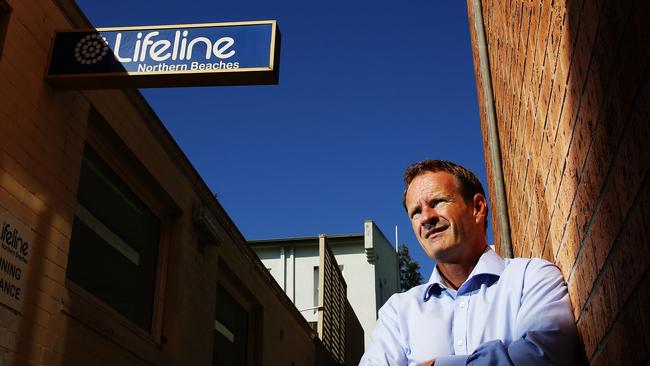
Manly
Don't miss out on the headlines from Manly. Followed categories will be added to My News.
THERE has been a spike in the number of young people taking their own lives on the northern beaches, according to Lifeline.
In particular there’s a growing concern about the number of young males — at least five aged between 15 and 24 — who have died in the former Pittwater area in the past 18 months.
In a further tragedy, a northern beaches high school student also took his own life recently.
Lifeline Northern Beaches chief executive David Thomas said there seemed to be a “disproportionate frequency of suicides” in the north of the peninsula which had left the community reeling.
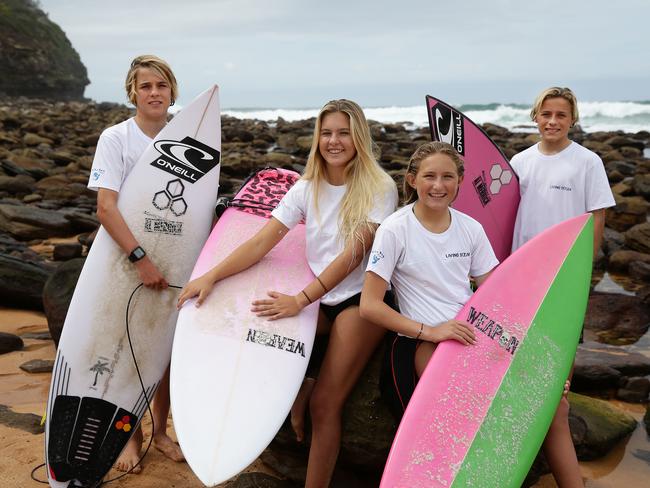
He said the latest suicide statistics only go up to 2015 and so his concerns were based on anecdotal evidence from the community.
But he said, the time to act was now. He told the Manly Daily, he wanted to get people talking about suicide and depression, so it was no longer taboo.
“There’s a stigma with suicide which makes people feel they can’t talk about it,” Mr Thomas said.
“We need to talk about it and we need to talk about the impact of it.”
At the end of the month, Lifeline Northern Beaches is holding its first surf competition to raise funds for the charity, which offers help for those feeling stressed, in crisis, or suicidal.
He said for the grieving Pittwater community, the event was something positive for them to support in the aftermath of their losses.
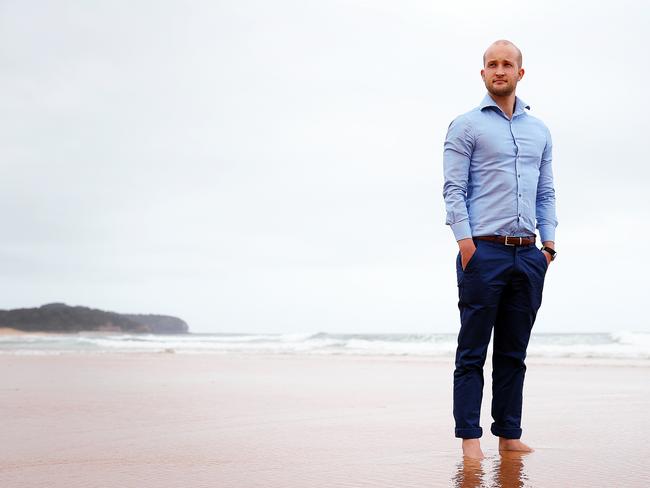
“I think this event has caught the attention of the youth, which is an age group at risk and who we want to reach out to,” Mr Thomas said.
“You only have to read the comments on the fundraising page to see the feeling among the community.”
The Lifeline Northern Beaches Classic is raising much-needed funds to support Lifeline’s telephone crisis and counselling support services, which have been expanded this year.
One person who contributed to the total raised wrote on the page: “Only a few months ago Avalon lost a soul who was very dear to our hearts and to all those that knew him. I think this initiative is exactly what’s needed right now.”
The Redback Surfware team gave its reason for signing up to the event.
“Our local community has been rocked by too many lives lost through suicide,” it wrote. “Our mission is to support the critical services of Lifeline to work toward zero life lost.”
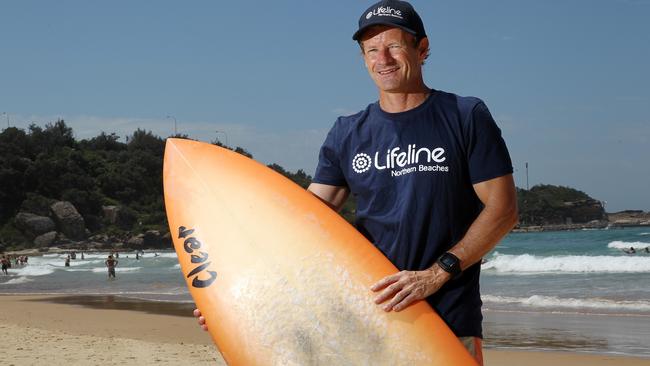
Living Ocean, a charity that promotes the awareness of human impact on the ocean, is sponsoring another surf team made up of pupils from a Pittwater high school, who lost a student to suicide.
Claudia Luscombe-Newman, 22, from Palm Beach, who volunteers at Living Ocean along with her parents and co-founders Robbi and Carol, is organising and supporting the team. For her the issue is personal.
She was close to two of the young men who took their own lives in the past 18 months and knew of the others through friends.
“I thought I was aware of people in my life who have depression,” Ms Luscombe-Newman said.
“But these deaths were completely out of the blue.
“They seemed incredibly happy, were charismatic, lovely boys. I saw no signs.
“I think there’s a stigma among boys that it’s not manly to speak out about mental illness.
“If I have a problem I talk about it with my girlfriends, we spill guts.
“But with males, I think it’s different.”
She said the deaths of so many youths had left the community in shock and a lot of young people were struggling to come to terms with the loss of life.
But Ms Luscombe-Newman said the surf event on April 30 had given young people something to focus on.
“It’s become personal,” she said.
“Raising money for charity is one of the few things we can do. Everyone is feeling completely united at the moment.”
Lifeline Northern Beaches training manager Liz Whyte said she joined the organisation after her brother took his own life 18 years ago and was close to one of the five who took their lives.
She said the impact of suicide on those left behind was devastating and lifelong.
“The surf event is allowing people to do something with their grief, build connections with other people, make a difference and begin conversations,” Ms Whyte said.
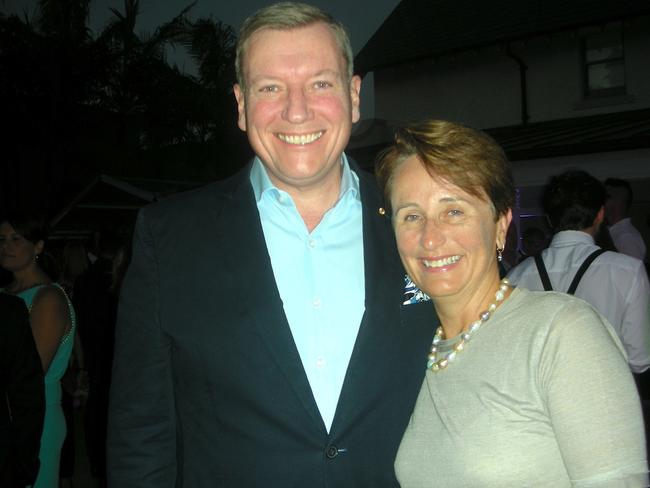
Lucy Brogden, wife of former NSW Liberal leader John Brogden, who made a well-publicised suicide attempt in 2005, said she was well aware of the suicides happening within the community.
“There’s too many young people dying on the northern beaches at the moment,” Mrs Brogden said.
She said today’s society put pressure on young people to perform and conform.
She said it was important that parents and the community talked about the future more positively and that stresses such as the HSC, employment and housing affordability was addressed with balance.
“The HSC is not the be all and end all,” said Mrs Brogden, who lives in Belrose and is a patron of Lifeline Northern Beaches.
“The world’s not perfect.
“Yes it can be hard finding jobs and buying a home, but there are opportunities and there is hope.”
There is still time for people to enter a surf team by signing up at lifelinenb.org .au or if you want to donate click on give.everydayhero .com/au/lifeline-northern-beaches -classic-1
If you need to talk to someone phone Lifeline, 13 11 14.
NSW HEALTH’S TIPS TO STARTING A CONVERSATION
If you feel something is not right with a friend or family member try to meet them in person and ask them how they are. Don’t ask in a group setting or via social media
You could start the conversation with, “I am a bit worried about you and wondering how you are?”
Don’t dismiss any fears they share. You could say, “I can see this is worrying you”.
If you feel they may be suicidal, ask them directly, “Are you having thoughts about suicide?”
If yes, try to find out whether they are planning it, as that can indicate whether they’re at immediate risk. “Have you thought about how you will kill yourself?” and “Have you thought about when you would kill yourself?”
You could also ask, “When did you first have thoughts about suicide?”
If you are concerned the person might take their life soon, contact emergency services immediately and stay with them.
Don’t keep it a secret, get someone else involved.
Talk with them about how they can get help, look at the options together and perhaps go with them to see their GP, counsellor or help them access a confidential telephone or online counselling service.
Look after yourself, helping someone in crisis can be emotionally draining. Talk through it with someone you trust and see help if you need it too.
Go to conversationsmatter.com.au for more ways to learn how to talk to someone you are worried about
Lifeline’s Accidental Counsellor program also helps people to know how to deal with unexpected conversations about mental health and suicide. For more details go to the website lifelinenb.org.au
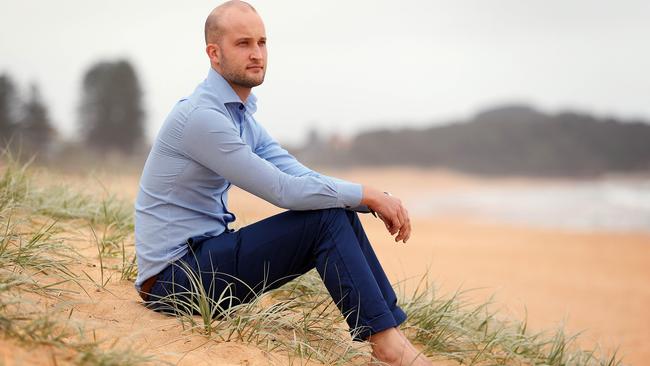
A NORTHERN beaches medical student, who lost two brothers to suicide, said the “juggernaut of stigma” surrounding depression and mental health, meant he felt he couldn’t talk about it.
Hayden Houlton’s older brother Ben took his own life in 2009, aged 20 and his younger brother Jason suicided two years later aged 17.
In the lead up to his brothers’ deaths and afterwards, the 26-year-old, who grew up and lives in Narrabeen, said he felt he couldn’t talk to his friends about his brothers’ suicide attempts or his own anxiety and depression because he feared they would think he and his family were “weak”.
And, while he was offered professional help he felt the adults seemed “too old” and “too judgmental” and so he rejected it.
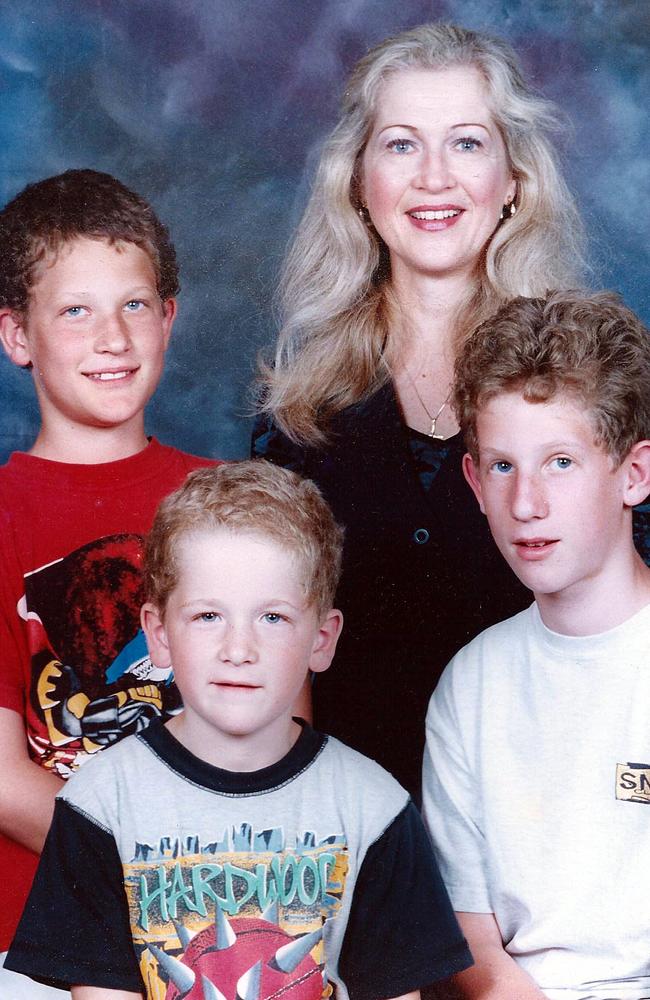
It was only when he started considering suicide himself, that he told his mother Michelle the extent of his problems.
He said a combination of medication and therapy helped him.
He is connected with a local psychologist in Manly Vale, who he no longer sees regularly, but is there if he needs help.
“My initial mode of coping was not to seek help but to keep it all to myself,” Mr Houlton said.
“Because suicide is not talked about, it’s become an individual’s problem.”
He said young people vulnerable to suicide should regularly be offered professional help, even if they’ve rejected it previously.
“I wasn’t ready when I was offered help initially,” said Mr Houlton, whose father John, 51, died of cancer when he was four.
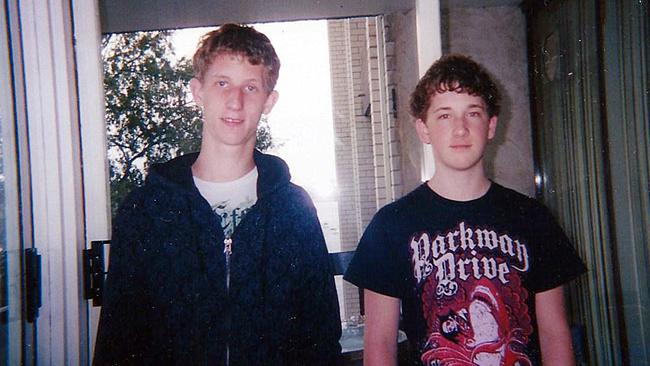
“If I had been offered help again a year later I might have taken it, but it never was,” he said.
Now Mr Houlton, a fourth-year medical student at Sydney University, is aiming to specialise in psychiatry or become a general practitioner ¬ focused on mental health to ensure other families are not forgotten by the mental health system.
He is also a youth ambassador for Postvention Australia and wants to encourage more support for those impacted by suicide.
He said Headspace in Brookvale, which focuses on youth mental health, was a valuable new service for young people today, which wasn’t available when he was younger.
But, he said there was a lack of acute care for young people with mental health needs on the northern beaches and said he hoped the new hospital would fill that gap.
Mr Houlton said he has also opened up to friends as he got older, which has also helped.
“I’m a really high risk for suicide and depression,” he said.
NSW POLICE TO SET UP NEW ANTI-TERRORISM UNIT
“I’ve been depressed many times.
“That makes me anxious, but being proactive and building up a support network has eased that.”
To contact headspace Brookvale go to headspace.org.au or call 9937 6500.



